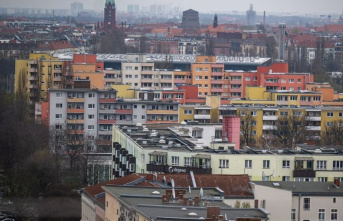Climate change is introducing new challenges for harvest storage, part of agriculture that is frequently overlooked
About 25 percent of the country's potato chips get their beginning in Michigan, at which faithfully cool atmosphere during September harvest and late spring was perfect for harvest storage. That is a large reason the country generates more chipping potatoes compared to any other.
However, with temperatures edging higher, Sackett needed to purchase several small refrigeration components due to their sprawling warehouses. It is expensive to run, but defeats having his sausage rust.
"Our great, fresh, cool air is becoming less all the time, it looks like," he explained on a recent afternoon because a front-end loader scooped up heaps of plump, light-brown sausage which would be packaged to a tractor trailer for dispatch to processor factories.
Once chosen, crops not instantly processed or consumed are saved -- sometimes for weeks. The heating climate is making this task harder and more expensive.
The yearly period with outside atmosphere cool enough to keep potatoes in Michigan's main manufacturing region probably will shrink up to 17 times by mid afternoon and around a month from the late 2100s, based on a investigation by Julie Winkler, a Michigan State University geography and scientist.
The window to get unrefrigerated storage can also be narrowing for apples at the Northwest and Northeast, peanuts in the Southeast, lettuce at the Southwest and berries at the Ohio valley, based on followup study released annually by plant scientist Courtney Leisner in Auburn University.
Techmark Inc., an agricultural technology firm based in Lansing, Michigan, made the Sackett farm gear. Co-owner Todd Forbush, whose clients also have growers of sugar beets, carrots and onions, stated storage of these crops increasingly will require refrigeration.
Growers will confront tough decisions about the economics of the operations. Producers who install gear to regulate humidity and temperature will see electricity costs rising because the exterior air gets warmer.
"Whose pocket is it likely to come from? Possibly the customer," Leisner stated, adding the possible effects of global warming on storage was"largely dismissed."
"There is a large disconnect in our heads about the series of events involving the area and the grocery shop and on our plate," she explained. "Only a couple of degrees could make all of the difference in whether it is economical to keep the fruits and veggies that we anticipate to have on our dinner 365 days per year."
Besides possibly higher costs, climate change could worsen food shortages brought on by spoilage. Approximately 14 percent of meals produced globally -- and 20 percent of fruits and veggies -- goes poor between retail and harvest, according to the United Nations Food and Agriculture Organization.
In Sub-Saharan Africa, little farmers shed up to one third of the stored grain to pests and mould, which may produce toxins.
Stored grain are more vulnerable to rotting, Strathers explained.
For fragile vegetables and fruits from the U.S. and Europe, a top storage barrier comes immediately following harvest, when temperatures have to be reduced quickly to prevent decay. Inc..
Climate change is"likely to incorporate an increasing number of pressure to the machine," Holcroft said.
In Mecosta, Michigan, the Sackett curry operation wanted only lovers to cool down newly dug potatoes to 60 levels (15.5 degrees Celsius) or lower, and maintain them for weeks.
Floor slats from the 16 storage containers permit the air to grow through mounds of celery, regulating their warmth and moisture in order that they won't dry out or becoming too wet and spoil.
But while the weather warms, it is not always sufficient.
Throughout the 1990s, there were just three years after Michigan's average temperatures in September and October was above standard. The 2000s had six years. By 2010-2020, the total climbed to eight.
Sackett started investing in small refrigeration units around a decade past. The bigger, custom-made apparatus he obtained last year could be wheeled around to various bins, helping cool down things as needed.
"Certainly not a inexpensive buy," he stated, adding that the next might become necessary.
What all this implies for the cost of a bag of potato chip is not apparent. But manufacturers will need to cancel their rising prices somehow, stated Forbush of Techmark, the gear firm.
"If we do not place the essential energy into keeping that merchandise, it might get worse."











